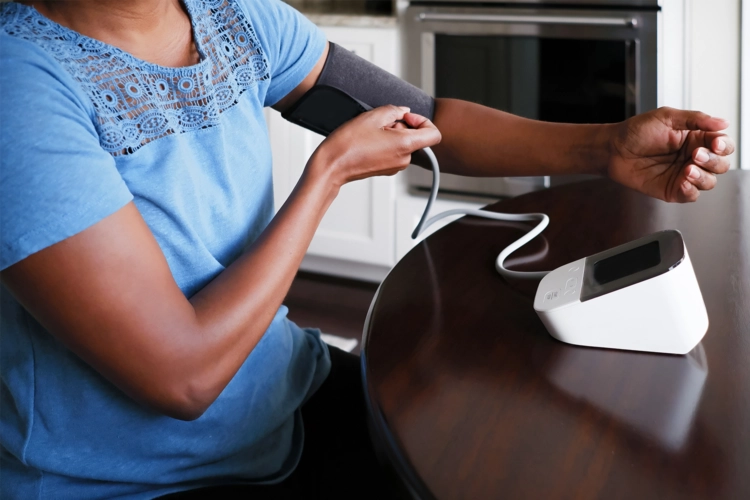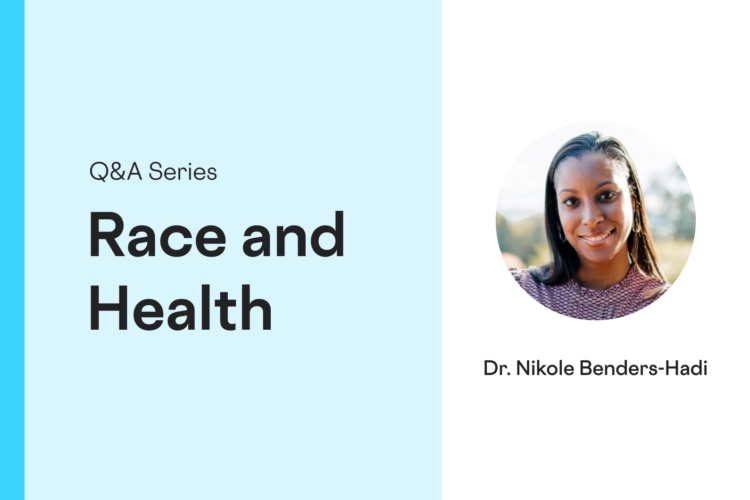Each year from April 11-17, we recognize Black Maternal Health Week to bring awareness to the unique issues facing Black mothers before, during, and after pregnancy. In the United States, Black women are three times more likely to die from a pregnancy-related cause than white women. Multiple factors contribute to this disparity, including the differences in healthcare quality, underlying health conditions, structural racism, and implicit bias.
There are tens of thousands of pregnancy-related health complications that will go unnoticed without the help of attentive, culturally competent healthcare professionals. Recognizing warning signs quickly and seeing a trusted healthcare professional are key.
Listening to your body and communicating when something doesn’t feel right are crucial first steps. Always begin any doctor’s visit or phone call by stating you are pregnant or that you recently delivered a baby. Even if you don’t feel that a symptom is worth bringing attention to, it is always better to speak up for yourself and take ownership of your healthcare.
Planning ahead:
Once you know you would like to have a baby, consider preconception counseling as an option. This is a special visit with an OB-GYN where you discuss any existing health conditions (high blood pressure, diabetes, asthma) and your pregnancy history (c-section, twins, high risk pregnancies etc).
Choosing your doctors:
Feel free to ask doctors directly if they are aware of disparities that exist in maternal mortality for Black mothers, and how they are working to address these issues. Ask yourself if you feel comfortable and listened to throughout your conversations with healthcare professionals and if you feel that they take your feelings seriously.
Keeping an eye on your reproductive health:
Get regular screenings like pap smears to detect cancer and screenings for sexually transmitted infections so they can be treated. Work with a doctor to understand irregular cycles, cramping, or heavy bleeding.
Committing to listening to your inner voice:
Trust yourself and listen to your body. Speak up if something is not feeling right. Get yourself in front of a doctor if you have concerns. It could save your life.
For further help with getting the best care, keep in mind these symptoms which require medical attention during, and up to one year after pregnancy:
- Severe abdominal pain
- Spotting/bleeding or fluid leaking during pregnancy
- Fever
- Severe swelling of face, hands, or legs
- Severe nausea and vomiting
- Sudden changes like dizziness, fatigue
- Baby’s movement slowing or stopping
- Fast or no weight gain
- Thoughts about harming yourself or your baby
- Headaches
- Chest pains or racing heart beats
- Shortness of breath
For help finding quality care, Included’s Black Health pairs you with a dedicated care coordinator from our Black-led team for help finding culturally competent doctors who understand your perspective.
About Included Health
Included Health is dedicated to uncovering key healthcare challenges faced by Black employees. We’re here to make sure everyone gets the care they need—regardless of race, gender, or identity. Included Health is transforming healthcare with dedicated advocacy and guidance expertly-tailored for underserved communities. Learn more about how we can help address inequities for your employees.
If you are a current Included Health member, please login to get the care you need.






